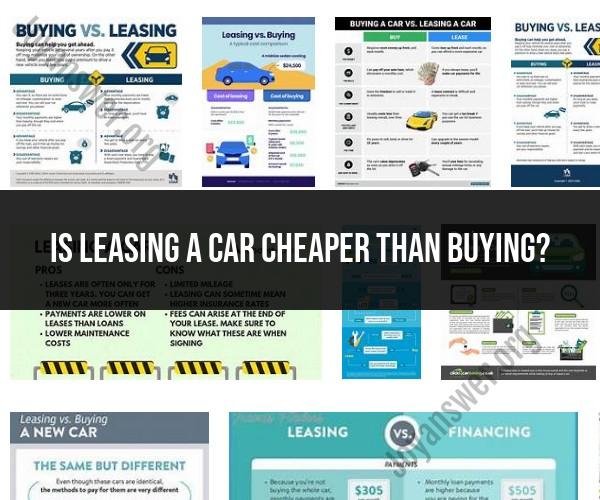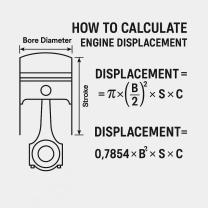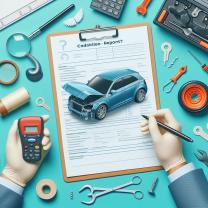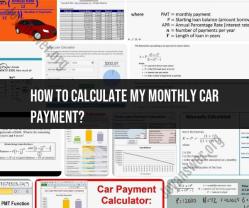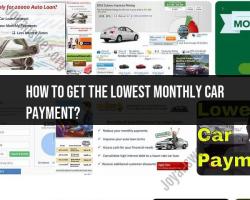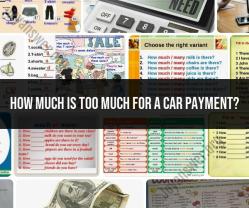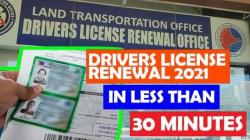Is leasing a car cheaper than buying?
Whether leasing a car is cheaper than buying one depends on various factors, and the decision should be based on your individual circumstances, preferences, and financial situation. Here are some factors to consider when determining whether leasing or buying is the better option for you:
Monthly Payments: Leasing typically involves lower monthly payments compared to financing a purchase. When you lease, you're essentially paying for the depreciation of the car over the lease term, whereas with a purchase, you're paying for the entire cost of the vehicle.
Down Payment: Leases often require a lower or even zero down payment, making it more affordable upfront compared to buying a car, which typically requires a down payment.
Ownership: When you lease a car, you don't own it; you're essentially renting it for a fixed period. If you want to own the vehicle, buying is the better choice.
Mileage Restrictions: Leases come with mileage limits, and exceeding these limits can result in extra charges. If you have a long daily commute or frequently take road trips, buying might be a better option as there are no mileage restrictions.
Maintenance and Repairs: Leased vehicles are often covered by a manufacturer's warranty during the lease term, which can reduce your maintenance and repair costs. When you buy a car, you'll be responsible for all maintenance and repair expenses after the warranty expires.
Customization: If you like to personalize your vehicle with modifications or accessories, buying is the better choice as leases typically have restrictions on customization.
Long-Term Cost: Over the long term, buying a car is usually cheaper. Once you pay off a loan, you own the vehicle outright and can continue to use it without monthly payments. Leasing involves a perpetual cycle of monthly payments.
Depreciation: New cars generally depreciate the most in the first few years. When you lease, you're only paying for the initial depreciation. If you buy, you bear the full brunt of depreciation but also have the potential for long-term value if you keep the car for many years.
Resale Value: If you plan to sell or trade in the car after a few years, buying can be advantageous because you can recoup some of the initial cost, whereas with leasing, you have no equity in the vehicle.
Credit Score: Leasing may require a higher credit score than buying. If your credit score is not strong, buying might be a more accessible option.
Taxes: Tax implications vary by location. In some places, leasing may have different tax advantages or disadvantages compared to buying.
Lifestyle and Preferences: Consider your lifestyle and how you prefer to use a vehicle. Leasing can be beneficial if you like driving a new car every few years and don't want to deal with long-term ownership responsibilities. Buying makes sense if you prefer long-term ownership and want to avoid monthly payments once the loan is paid off.
In summary, whether leasing a car is cheaper than buying depends on your individual financial situation and preferences. Leasing often offers lower monthly payments and the advantage of driving a new car every few years, while buying provides long-term ownership and potential equity in the vehicle. Carefully assess your needs and budget to make the best choice for your situation. It's also a good idea to consult with a financial advisor or car dealership to explore the specific terms and options available to you.
Car Leasing vs. Buying: Which Option Is More Cost-Effective?
Leasing is a type of long-term rental arrangement for a car. You pay a monthly payment to the lessor (usually the dealership) for a set period of time, typically two to four years. At the end of the lease, you can return the car to the lessor, purchase it at a predetermined price, or lease a new car.
Buying a car means that you own it outright. You can finance the purchase with a loan or pay for it in cash. Once you pay off the loan, you no longer have any monthly payments. However, you are responsible for all maintenance and repairs.
Which option is more cost-effective depends on your individual circumstances and driving habits. Here is a general overview of the pros and cons of each option:
Leasing
- Pros:
- Lower monthly payments than buying
- No down payment required
- Typically includes free maintenance and repairs
- You can always drive a new car
- Cons:
- You don't own the car at the end of the lease
- You are limited in the number of miles you can drive each year
- You may have to pay a disposition fee at the end of the lease
Buying
- Pros:
- You own the car at the end of the loan
- You can drive as many miles as you want
- You can modify the car as you please
- Cons:
- Higher monthly payments than leasing
- Down payment required
- You are responsible for all maintenance and repairs
Which option is right for you? Consider the following factors when making your decision:
- Budget: Leasing can be a good option if you're on a tight budget. However, it's important to factor in the total cost of the lease, including the monthly payments, down payment, and disposition fee.
- Mileage: If you drive a lot of miles, buying may be a better option than leasing. Most lease agreements have mileage limits, and you may have to pay a penalty for every mile you exceed the limit.
- Ownership: If you want to own your car at the end of the term, buying is the only option.
The Economics of Auto Ownership: Is Leasing Cheaper than Buying?
Whether leasing or buying is cheaper in the long run depends on a number of factors, including the cost of the car, the length of the lease or loan, the interest rate, and the mileage you drive.
In general, leasing is typically cheaper than buying in the short term. This is because you're only paying for the depreciation of the car during the lease term. However, buying is typically cheaper than leasing in the long term. This is because you eventually own the car and can avoid making monthly payments.
Here is a simple example to illustrate the difference:
Leasing:
- Car price: $30,000
- Lease term: 3 years
- Monthly payment: $400
- Down payment: $1,000
- Disposition fee: $300
Total cost of lease:
- Monthly payments: $400/month * 36 months = $14,400
- Down payment: $1,000
- Disposition fee: $300
Total cost: $15,700
Buying:
- Car price: $30,000
- Loan term: 5 years
- Interest rate: 5%
- Monthly payment: $550
Total cost of loan:
- Principal: $30,000
- Interest: $3,750
Total cost: $33,750
As you can see, leasing is cheaper in this example in the short term. However, buying is cheaper in the long term.
Calculating the True Cost: Comparing Car Leasing and Buying
To calculate the true cost of leasing and buying a car, you need to factor in all of the costs involved, including:
- Leasing:
- Monthly payments
- Down payment
- Disposition fee
- Excess mileage fees (if applicable)
- Buying:
- Purchase price
- Down payment
- Interest on loan (if applicable)
- Maintenance and repairs
- Insurance
- Depreciation
You can use a car leasing vs. buying calculator to help you compare the costs of each option.
Conclusion
Whether leasing or buying is a better option for you depends on your individual circumstances and driving habits. Consider the factors discussed above when making your decision.
